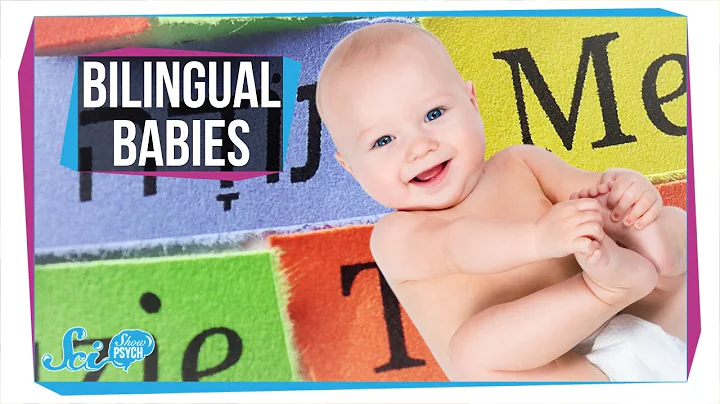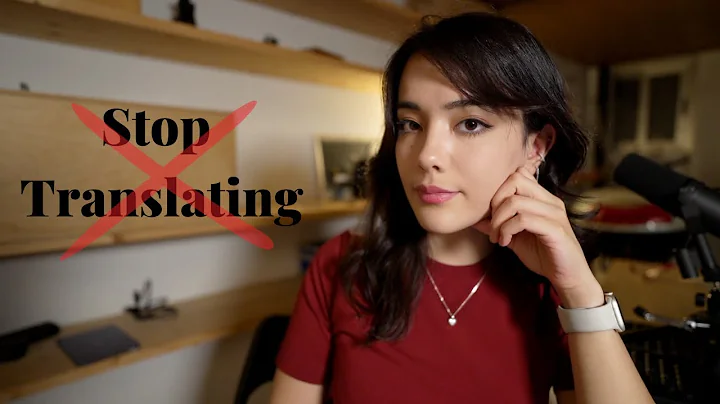Foreign language learning is becoming more and more recognized, and almost every child is receiving foreign language learning to varying degrees. So, what will children gain from learning a second language? I believe that many parents are still stuck in the stage of "we have to learn because others are learning"...
Today, we will talk about the benefits of multi-language learning so that parents can better understand their children's development.

First, let’s take a look at the motivation for language training. From a theoretical perspective, Gardner and Lambert, pioneers in language learning research, divided the reasons and motivations for foreign language learning into two major types:
Practical and emotional.
The former uses language as a tool to achieve goals, such as finding a better job; the latter is motivated by a love of language and a desire to become a member of the language group.
- Practical -

The practical benefits of being multilingual are many, one of the main motivations being access to job opportunities that are only available to bilinguals or polyglots. Knowing another country's language makes traveling and studying abroad easier. You can communicate with more people and expand development opportunities.
If children can start learning foreign languages early, there are actually many teaching methods suitable for their age:
For example, combining music, stories, games, etc. can not only make learning easier but also avoid learning foreign languages as a subject when they grow up. It's boring, but if you can master a few foreign languages, you still have the opportunity to show your talents in the fields of diplomacy and international economics and trade, helping people of different languages to build bridges of cultural understanding.
- Emotional -

Emotional motivation refers to viewing language learning as a means to improve cultural literacy, or learning a language in order to gain a sense of belonging to the language group. Children who speak without an accent are more likely to be accepted into the language group when they grow up.
Now that we understand the basic motivations for language teaching, let’s take a look at what the children will gain in the future.
▧ Language is the key to opening the treasure house of national culture
Language gives children a special key, allowing them to open the treasure house of various national cultures, but even the best translation sometimes cannot fully restore the charm of the original language.
As bilingual poet ( Irish /English) Nuala Ni Dhomhnaill said, Different versions of translation emphasize different aspects of the original text, just like different facets of a diamond reflect different light and colors of the same stone.
Many studies have shown that children who have been trained in multiple languages are not only better at solving problems, but also have talents in other areas. They can both use language and "see" language.
To understand this idea, we can think of words as windows. Through the window we can see the thing or concept represented by the word. So if we say “dog,” a furry, barking animal comes to mind.
At this time, the way the word "dog" is written does not actually attract your attention, but directs your attention to the animal through this word. But if I ask how many strokes the character "dog" has, the character is no longer the window through which the puppy can be seen.
In order to count the strokes, the words themselves have become a "thing". Young multilingual children often switch between languages many times. Their awareness and knowledge of language develops more, creating stronger abstract connections between words and sounds.
The research results of Ellen Bialystok, a psychologist at York University in Toronto, tell us that multilingual children can not only see the things they refer to through the words, but also the pronunciation and syllables of the words. They develop this aspect earlier than monolingual children of the same intelligence level.
The famous Swiss psychologist Jean Piaget once conducted a well-known experiment to test children's understanding of the abstract relationship between words and concepts.He asked the children: "If the names of the sun and the moon were interchanged, which one should hang in the sky at night?"
He found that most of the children could interchange the names and correctly answered that the sun would appear in the sky at night. , Next, the question that is more difficult for children to answer is, "So what will the sky look like at night?" The children firmly believe that the sky will become very bright at night. Since
is just a name exchange, not the two objects themselves, the night sky should still be black. Years later, Jim Cummins of the University of Toronto also conducted this experiment. His research showed that bilingual children answered better than monolingual children when answering Piaget's question about the exchange of the sun and the moon.
Under the same conditions, polyglots are better at using new words while maintaining the original meaning of the sentence.
▧ Multilingual children enter the reading and writing stage earlier than monolingual children
Ellen Bialystok compared English monolinguals and three groups of bilinguals in a phonological awareness task test. They are Spanish/English, Chinese/English, Hebrew /English.
They asked 6-and-a-half-year-old children to count the number of syllables in a word. For example, p-a-t has three sounds, and a-g-ai-n has four sounds. The final result was that Spanish/English and Hebrew/English groups performed best. English monolinguals had the lowest scores among the four groups.
In kindergarten, standardized reading tests only test whether children can recognize pictures and letters, but by the second grade of elementary school, differences in reading skills between groups begin to appear. The group taught in multiple languages performed better than the other groups, and this advantage persisted.
▧ More flexible thinking
Another advantage of polyglots is reflected in their flexibility of thinking. Multilinguals are able to come up with different solutions when dealing with problems, and results show that when solving scientific problems, multilinguals come up with three times more hypotheses than monolinguals. Thinking ability is considered one of the basic factors of creativity.
▧ Stronger selective attention
Selective attention is called "executive function". This ability develops between the ages of 2 and 5, gradually strengthens in adolescence, but then declines with age. Multilingual people, regardless of language or age, perform better in selective attention.
▧ Broaden your horizons and understand others
Research by psychologists at Stanford University found that people who speak English and Indonesian may understand the same event differently, and the reason is that there are differences in the way their respective languages describe the event. She showed people three pictures showing actions:
The first picture was of a man lifting his legs back and about to kick the ball; the second picture was of the man who had just kicked the ball; and the third picture was of another person. Made exactly the same action as in the first picture.
Subjects were asked to answer which two pictures were more similar. Most English speakers would say that the first and third pictures are more similar in that they both say "a man is about to kick the ball"; in the second picture "he has already kicked the ball out".
Indonesians don’t see it that way. In their language, it is not necessary to use verb conjugation to indicate the difference between "about to kick" and "already kicked", which means that both actions can be said to be "kicked". All three photos could be described as "a man playing football." This pattern was reflected in most Indonesian responses in the
experiment. The way we see things is indeed affected by language, and multilinguals are affected by a combination of several linguistic influences. They can realize that in fact, many times there is more than one “right point of view”.
It is easier for them to understand that their own point of view is just one or two of many, and they are more tolerant and understanding of other people's different opinions.
In short, the child itself is a treasure, it depends on how we dig it. Multilingualism brings us better wisdom and helps us build a better world.
Language can convey the wisdom contained in culture, and different cultures represent different ways of life. We hope that everyone can realize the benefits that multilingualism brings to us, thereby strengthening the faith of family members around us. If you persist, you will definitely benefit a lot.





















